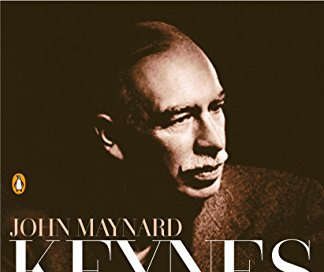Robert Skidelsky, John Maynard Keynes: 1883-1946: Economist, Philosopher, Statesman
Skidelsky wrote three biographies of Keynes, published 1983, 1992, and 2000. This is the abridged, single volume version, published in 2013 and running to just over a thousand pages. While the original was researched and written during the Thatcherite and early Blair years, this abridged version comes hot on the heels of Skidelsky’s attempt to defend Keynesian economics in the wake of the 2008 crash. For Skidelsky, 2008 marked the end of the Chicago School Orthodoxy which had eclipsed Keynes since the 70s and 80s. As such, the choices Skidelsky makes of where and what to cut to make this version would be a fruitful if probably intensely boring project. What this essay does argue however is that the contradictions of Skidelsky’s 2013 project reveal the difficulty of biography as polemic.
The most obvious comparison to Skidelsky’s project would be to Robert Caro’s long-running work on LBJ. Not ust because of the type of person most likely to read these for ‘fun’. Both Skidelsky and Caro for example, aim for a type of exhaustiveness: Despite the abridgement, Keynes’ milieu and psyche are given equal footing with the intellectual and cultural influences on him as a young man. What he might have read at Cambridge, who those people might have read, who his friends might have read, and what those friends of friends might have thought of Keynes are all retained if perhaps abridged from the original three volume set.
Economist, Philosopher, and Statesman is at great pains to underscore both the novelty and liminality of Keynes. But at the same time that it lauds the intelligence of a young man who was injected into Eton in order to provide the intellectual ‘leaven’ to the english upper classes, it doesn’t know quite how to handle Keynes’ homosexuality. Nor does it handle Keynes’ own ambivalent love of the Bloomsbury set (and the set’s ambivalence towards him). When Keynes meets and marries the Russian Ballerina Lydia Lopokova, you can almost hear Skidelsky breathe a sigh of relief at the appearance of a stable, heterosexual union that would not have been out of place alongside the huffing of some of Keynes more reactionary critics. The book then is caught between the individual and the current in which he was swept, his influences and the development of Keynesianism which - Keynes noted at one point - others seem to have adopted more readily than Keynes himself.
I think the main problem here is one of the political projects of the abridgement. Skidelsky is never quite sure whether to underscore Keynes’ bohemian lifestyle, his reactionary aesthetic, or to try to place Keynes within Keynesianism. This is symptomatic of the attempt to repurpose a text written during Thatcher’s reign to the post-crash world. Keynes here is trapped between the Victorians and the New America economic order created after WW2, just as we are - were? - caught between neoliberalism and populism. As such, the biographer tries to find some sort of lessons here that can go beyond comparison and towards prescription. Thankfully what Skidelsky does not do - which Ferguson does - is blame the residual sense of Keynes’ reactivity and horror of long-term thinking on his ‘homosexuality’ or supposedly ‘passionless’ marriage. He does however seem at pains to find a moral lesson, or at least a guide, in Keynes life, that will draw together something like a moral and intellectual arc.
Again, I think that this presents more evidence of a wider crisis of the genre of biography as it runs up against a subject wary and yet a product of the Great Man victorianism. Skidelsky understands Keynes as both suspicious of a whiggish history, of free trade and low taxes, yet a product of that Victorian culture then in abeyance. Not only that, Keynes was cognizant of the transitory and liminal time in which he lived, of how he was a Bertrand Russell like relic of something not-quite out of living memory. A glance at Keynes’ time in America during WW2 to get the sense of a civilisational juncture that permeates his thinking.
So what of Skidelsky’s sense that Keynes has something to say in the wake of the financial crisis? Again, the overarching sense of the book is one of anxiety of form and thought. Keynes' supposed rejection of ideology (while of course being its subject) and the contingency of his thought does not mesh well with Skidelsky’s proscriptive and summative project.


